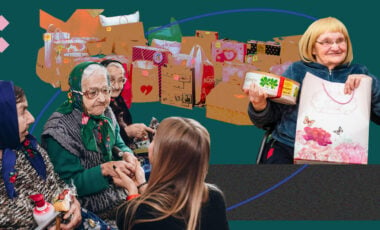Ukraine to introduce electronic bracelets to address accountability of offenders in domestic violence cases

Photo: PeopleImages.com/Depositphotos
The Ukrainian parliament, Verkhovna Rada, has supported a bill in the first reading to amend certain legislative acts on restrictive measures against domestic violence.
MP Yaroslav Zheleznyak announced this on Telegram, Rubryka reports.
What's the problem?
Since the beginning of 2023, the Ukrainian police have received nearly 244,000 statements and reports of domestic violence. This crime is the most widespread form of gender-based violence in Ukraine.
According to Ivan Vyhivskyi, the head of the National Police of Ukraine, law enforcement received:
- 76.5% of reports from women,
- 20% from men,
- and over 3% from children.
"The war has undoubtedly affected all citizens. Ongoing tension and stress contribute to aggression and conflicts, and these factors are among those that cause domestic violence," noted Ivan Vyhivskyi.
He mentioned that for every second report of domestic violence, police draw up administrative protocols and, in a third of cases, issue urgent prohibitory orders against the perpetrators.
Under Article 126-1 of the Criminal Code of Ukraine (committing domestic violence), investigators have initiated over 2,300 criminal proceedings. Almost 2,000 offenders have already been informed of suspicion.
To prevent and counter domestic violence, 54 specialized units have been created within the department, with 62 mobile response groups in operation.
"Law enforcement officers also monitor compliance with the requirements of temporary restrictions on the rights of offenders and conduct joint preventive raids with social services in families where domestic violence occurs," said Vyhivskyi.
What's the solution?
Parliament has supported, in the first reading, a bill to amend certain legislative acts about the application of restrictive measures against domestic violence. Legislative initiative №5629 was supported by 238 MPs.
The project aims to regulate the application of restrictive measures against domestic violence. The bill proposes changes to several legislative acts concerning the use of electronic monitoring tools to track compliance with restrictive orders by offenders, relating to a prohibition on approaching the victim.
How does it work?
Such a restrictive measure is applied to the convicted person only with the written consent of the victim of domestic violence or their legal representative unless the legal representative is the convicted person.
When this restrictive measure is applied, the convicted person is obliged to wear an electronic monitoring device.
The bill's authors believe that its adoption will contribute to addressing issues related to effective means of evidence and proper control in countering domestic violence, relying on the positive experience of European countries.
Background
Kyrgyzstan has already begun testing electronic bracelets intended to combat family violence. The Kyrgyz Ministry of Justice notes that these devices are "very effective in combating family violence, as they can restrict the proximity radius of relevant individuals to specific subjects/people/territories."
Currently, the department is conducting an analysis and evaluation of the methods for using such bracelets.
According to the WPS Index (Women, Peace, and Security Index), Kyrgyzstan has been recognized as the most dangerous country in Central Asia for women for the second year in a row — 13% of Kyrgyz women experience violence from close persons.
Earlier, it was reported that Ukraine had created a "hotline" dashboard for domestic violence victims.
On April 4, the first psychological support training center in Ukraine, the Kyiv Resilience Center, was opened in the capital. Rubryka learned how it operates and how this solution will help.
There are 11 centers to assist those saved in Ukraine, providing comprehensive support on various issues for free. Rubryka has compiled hotline numbers for veterans, teenagers, and victims of violence to help cope with emotional exhaustion and feelings that may seem stronger than yourself.





















































